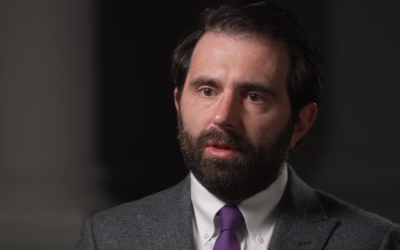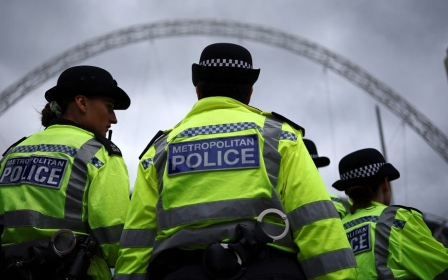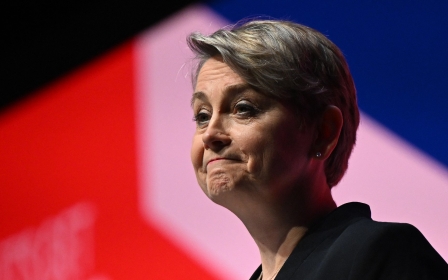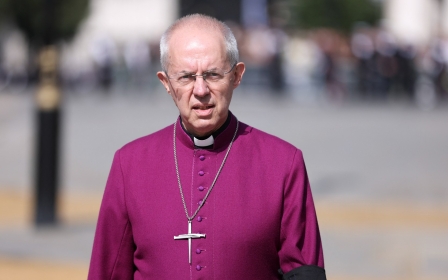UK government urged to overhaul Prevent and counter-extremism policies
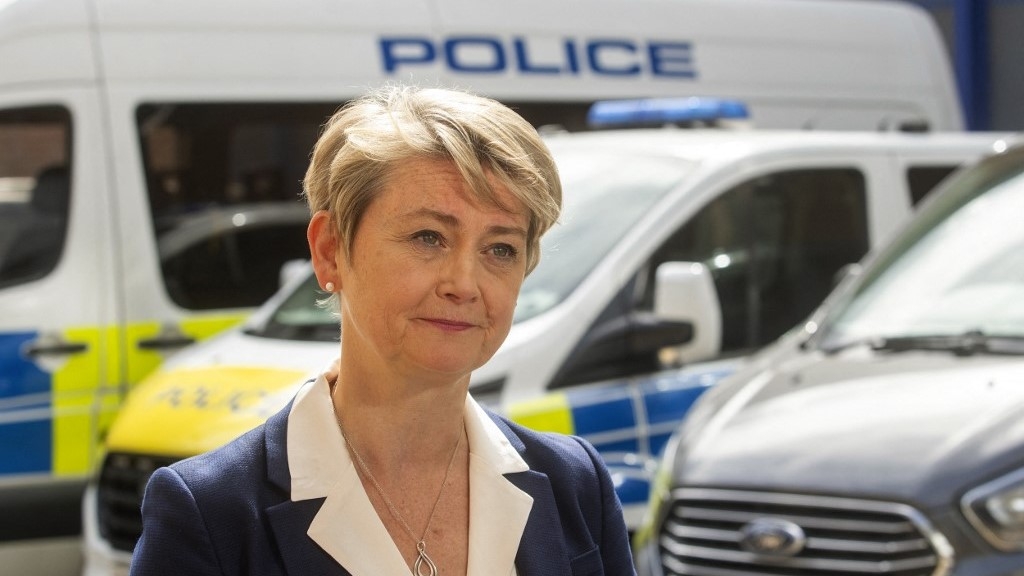
A coalition of leading civil society organisations has urged the UK Labour government to overhaul counter-extremism policies including the controversial Prevent programme, Middle East Eye can exclusively report.
In a letter sent to Home Secretary Yvette Cooper, the organisations also called for the suspension of a new definition of extremism proposed in March by then-communities minister Michael Gove under the previous Conservative government.
Signatories of the letter included Prevent Watch, Amnesty International, Liberty, Medact, Rights & Security International and The Runnymede Trust.
It comes after Cooper recently commissioned a new review of the UK's counter-extremism strategy and following a significant United Nations report last month which criticised the UK’s counter-terrorism policies and called for the suspension of Prevent, as well as advocating reparations for people abused under it.
The letter calls for a reversal of the most radical and far-reaching changes introduced by the previous government, and a reconsideration of the conclusions of Willliam Shawcross's contentious review of Prevent last year which was widely rejected as flawed and partisan by civil society organisations.
New MEE newsletter: Jerusalem Dispatch
Sign up to get the latest insights and analysis on Israel-Palestine, alongside Turkey Unpacked and other MEE newsletters
At the same time, its proposals open an avenue for Prevent, widely criticised as threatening free speech and disproportionately targeting Muslims, to be reconsidered by being placed under the remit of the Independent Reviewer of Terrorism Legislation, currently Jonathan Hall.
"Over 50,000 individuals have been referred to Prevent to date and the discriminatory and damaging consequences on society at large as well as racialised groups has been well documented," the letter read.
Government urged to suspend extremism proposal
In March, Gove announced a contentious non-statutory definition of extremism as "the promotion or advancement of an ideology based on violence, hatred or intolerance".
He highlighted the Muslim Association of Britain, Mend and Cage, as well as a number of far-right groups, as examples of organisations targeted by the definition, suggesting that their activities gave "rise to concern for their Islamist orientation and views". The three organisations strongly denied that they were extremist.
In their letter, the civil society organisations urged the government to suspend the proposal for the new definition.
The letter also advocated that the Commission for Countering Extremism (CCE), currently headed by Robin Simcox, be "suspended from its current – publicly unaccountable – role as responsible for the direction of Prevent within the Home Office and across government departments".
When the CCE was set up in 2018, its purview was initially limited. As its charter stated, the CCE “has no remit on counter-terrorism policies, including Prevent”.
But Simcox later claimed in 2023 the CCE was set to “process and investigate complaints about Prevent” - and to “determine if Prevent is being delivered properly within a direction already set by ministers”.
This would have violated the CCE’s charter, were it not for the fact that it was withdrawn in July 2023.
The CCE was also empowered to designate organisations and groups as extremist, in order to vet them for government engagement.
A 2021 report by Simcox's predecessor Sara Khan and Mark Rowley, who now leads the Metropolitan Police, had argued for legislation to be introduced against "hateful extremism".
But Hall has said that their report's definition of "hateful extremism" used "imprecise language that could not possibly form the basis of a legal definition".
He warned that such a definition "might inadvertently include legitimate political campaigning as extremism".
Cooper has been supportive of the idea of "hateful extremism", and of making it more expansive - although she has not suggested establishing a legal definition.
'Prevent casts suspicion on entire communities'
- Dr Layla Aitlhadj, Prevent Watch
The civil society letter appears to be aimed at encouraging the government to move away from an emphasis on non-violent extremism.
Dr Layla Aitlhadj, director at Prevent Watch, said: "By operating on vague definitions of extremism and a flawed understanding of radicalisation, Prevent casts suspicion on entire communities, disproportionately affecting racialised groups.
"It’s time to heed the growing calls - from the UN, civil society, and affected communities - to suspend Prevent, and halt any further counter-extremism measures that erode human rights and undermine trust in our institutions."
Ilyas Nagdee, racial justice director at Amnesty International UK, said: "We need a halt to further counter-extremism measures which currently move in one direction only – towards further damaging and discriminatory consequences for our society.
"The UK government must make tackling institutional racism and inequality foundational to its missions and ensure they do not vilify some of the most marginalised people in our communities through measures based on the deeply flawed Shawcross review and commissions which are not publicly accountable."
Middle East Eye delivers independent and unrivalled coverage and analysis of the Middle East, North Africa and beyond. To learn more about republishing this content and the associated fees, please fill out this form. More about MEE can be found here.


